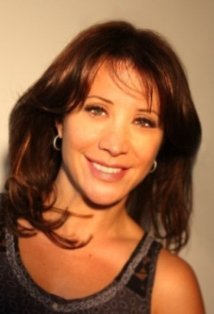

While this past season earned the show its biggest ratings in 20 years, it is as much a reaction to the roller-coaster ride of politics as it is any original contributions from the players and crew. This season, however, seemed primed to be a breakout for this era and it was, just not in the way that showcased its cast members. More than anything, this era’s problems stem from inconsistencies in the head writer slot, which has been in constant flux since Seth Meyers left.

Still, it has been four seasons since the last major cast departures, which is plenty of time to establish itself. Not to mention, it doesn’t have the benefit that older casts have where the bad fades from memory and only the classics linger. It feels a little unfair to judge this era while it’s still shaping its identity. So, yes, SNL wouldn’t still be around today if it weren’t for Murphy, but it’s hard to argue the show as a whole ever captured the same special something he did on his own. However, SNL is meant to be a variety show, and that means showcasing a variety of comedic talents. Murphy was the biggest star the show ever produced and dominated like few cast members ever have.

The smartest thing Ebersol did was keep an underused Eddie Murphy and Joe Piscopo when he turned over the cast. Still, NBC persisted and brought on SNL’s absentee father - co-creator Dick Ebersol - to save the day. When SNL ’80 ended up being an unmitigated disaster, the first iteration of the “Saturday Night Dead” critics declared victory. When Lorne Michaels and the entire original cast hightailed it out of 30 Rock, NBC seemed insane to try continuing SNL under a new producer (Jean Doumanian) and a new cast with no-names like Tony Rosato, Ann Risley, and Gilbert Gottfried. McCarthy, Dan Pasternack, Josh Wolk, Elise Czajkowski, Bill Sheft, John Sellers, Scott Rogowsky, Katla McGlynn, Alex Edelman, and a number of voters who requested to remain anonymous.įrom left: Julia Louis-Dreyfus as Daria, Robert Blake, Eddie Murphy as Buckwheat, Joe Piscopo as Froggy during the monologue on November 13, 1982. Like the show itself, it will likely change with time, but in 2017, this is where it stands.Ī big thank you to our panel, which included: Jen Chaney, Dave Schilling, Matthew Love, Jesse David Fox, Yael Kohen, Wayne Federman, David Sims, Mike Ryan, Mike Sacks, Meghan O’Keefe, Sean L. After taking into account everyone’s opinions, we came away with our ranking below. Which era is the best likely depends on the age of the person you ask, subjective to their comedic taste, how they watch the show, and when you ask them - to account for that, we asked a panel of comedians and journalists to weigh in and rank the eras individually. This ranking aims to capture which era left the best overall impression.Ī note on how the eras were defined: The show could be sliced up many different ways, but what we landed on felt like the clearest lines to draw based on cast arrivals, departures, and head writer tenures. Every era has good years and bad years - sometimes they take a while to gel sometimes they come quick and fizzle out - but ultimately they leave a sense of who they were. Saturday Night Live is a show of eras - casts that come together and peak around the same time.

All week long, Vulture is taking a close look at Saturday Night Live ’s biggest season in years.


 0 kommentar(er)
0 kommentar(er)
